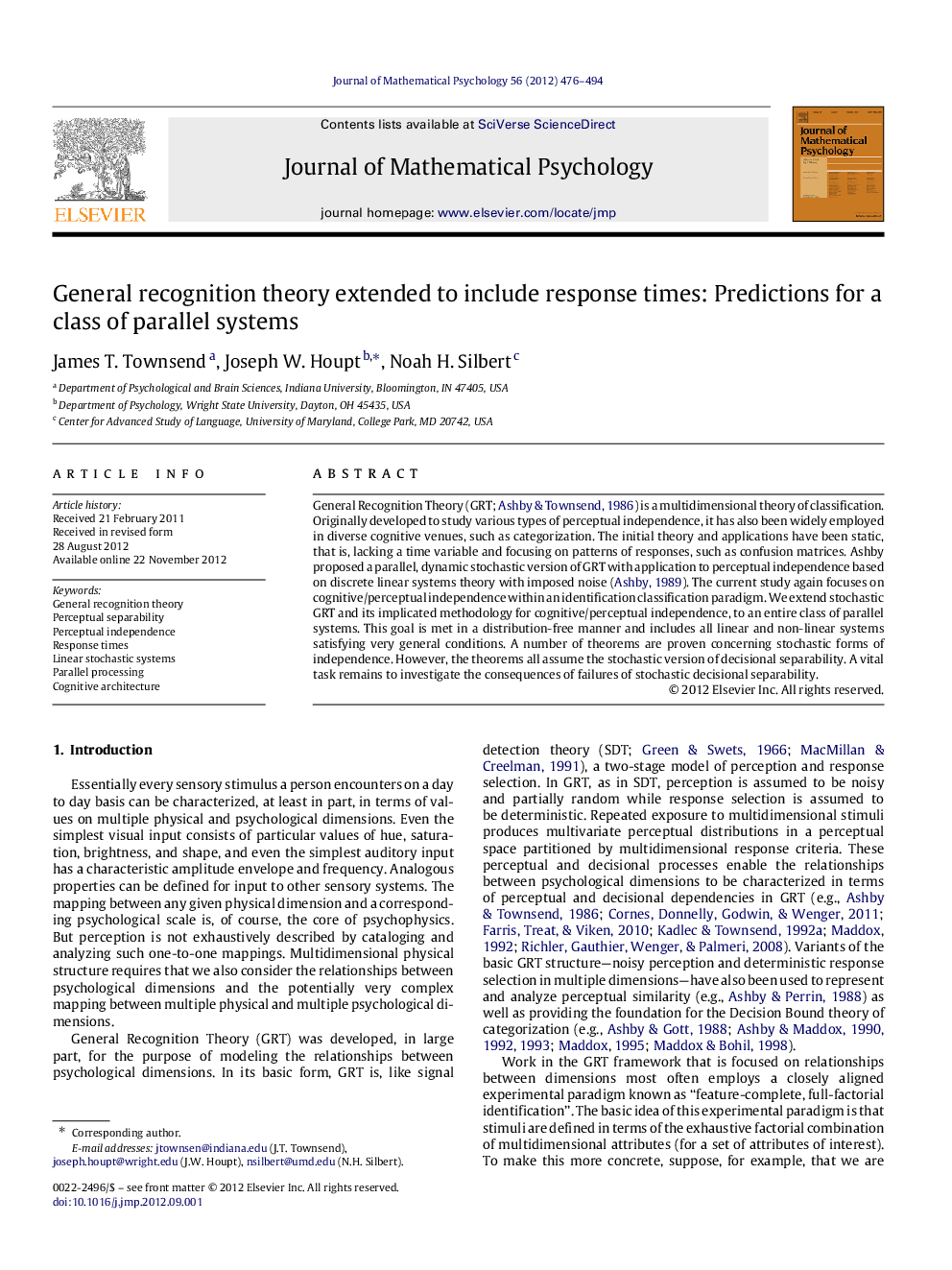| کد مقاله | کد نشریه | سال انتشار | مقاله انگلیسی | نسخه تمام متن |
|---|---|---|---|---|
| 326226 | 542055 | 2012 | 19 صفحه PDF | دانلود رایگان |

General Recognition Theory (GRT; Ashby & Townsend, 1986) is a multidimensional theory of classification. Originally developed to study various types of perceptual independence, it has also been widely employed in diverse cognitive venues, such as categorization. The initial theory and applications have been static, that is, lacking a time variable and focusing on patterns of responses, such as confusion matrices. Ashby proposed a parallel, dynamic stochastic version of GRT with application to perceptual independence based on discrete linear systems theory with imposed noise (Ashby, 1989). The current study again focuses on cognitive/perceptual independence within an identification classification paradigm. We extend stochastic GRT and its implicated methodology for cognitive/perceptual independence, to an entire class of parallel systems. This goal is met in a distribution-free manner and includes all linear and non-linear systems satisfying very general conditions. A number of theorems are proven concerning stochastic forms of independence. However, the theorems all assume the stochastic version of decisional separability. A vital task remains to investigate the consequences of failures of stochastic decisional separability.
► We extend general recognition theory to simultaneously analyze response time and accuracy.
► We establish relationships between perceptual independence/separability and response time.
► We extend the theoretical results by simulating interactions between processing channels.
► We illustrate application of these methods with two auditory perception experiments.
Journal: Journal of Mathematical Psychology - Volume 56, Issue 6, December 2012, Pages 476–494